Prebuilt vs. Custom PC for Gaming: Which Is Better?
Should you buy a prebuilt gaming PC or build a custom gaming PC? The off-the-shelf vs. custom gaming build debate has evolved over the past few years. Some tried-and-tested beliefs about prebuilt systems still hold, while other considerations have changed. This guide helps you decide prebuilt vs. custom PC for gaming: which is better for you?
1. Convenience
Let’s begin with the most striking difference between prebuilds and custom builds. When you decide to build a custom gaming PC, you need to fulfill the following conditions before you even start to think about the price:
- Considerable knowledge about the latest CPUs, GPUs, motherboard platforms, and storage and memory speeds
- Information on where and how to purchase individual components to maximize the value
- Technical know-how to assemble the PC
- Knowing how to optimize every component and various BIOS and OS settings to maximize gaming performance
If you have not been following industry developments for a while or aren’t interested in doing so, venturing into the market and buying components is simply an exercise doomed to fail. Without knowing the right motherboard platform to select, how the Intel vs. AMD situation is evolving, or which storage and memory standard you should buy, you won’t be able to build the best PC within your budget.
And to top it all off, you also need to be confident that you’ll be able to put everything together and do a decent job with things like cable management.
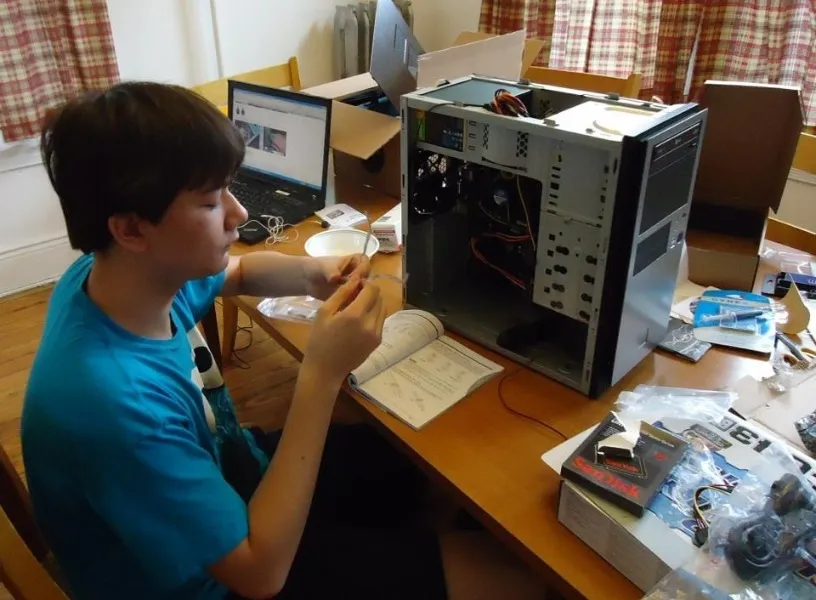
In contrast, if you buy a prebuilt gaming computer from any of the major retailers in the space, you can bypass all of these restrictions and focus on enjoying your shiny new gaming machine. Today, major retailers offer powerful prebuilt gaming PCs at various prices to help customers choose one that suits their needs.
Note that you still need to have some basic knowledge of which CPU to buy and which GPU is the best to support the gaming performance you’re looking for.
Verdict: overall, the gulf of technical know-how needed to build a custom PC is still massive enough that a prebuilt might be the most convenient option for most gamers.
Also helpful: whether you decide to build your own PC or buy a prebuilt one, you will likely need a new gaming monitor.
2. Pricing
You could build or buy the most potent gaming beast if the price weren’t a consideration. But sadly, for most of us, it is a factor and, often, the deciding factor. Yet, the price discussion isn’t as clear-cut as the convenience discussion.
Conventional wisdom held that going custom was the obvious choice if you wanted to get the most value per dollar, as prebuilt system retailers used to include significant markup fees for the same configuration of a custom-built PC.
Moreover, many components these system integrators chose were often low-quality and off-brand and didn’t guarantee performance under sustained loads or maximize the value.
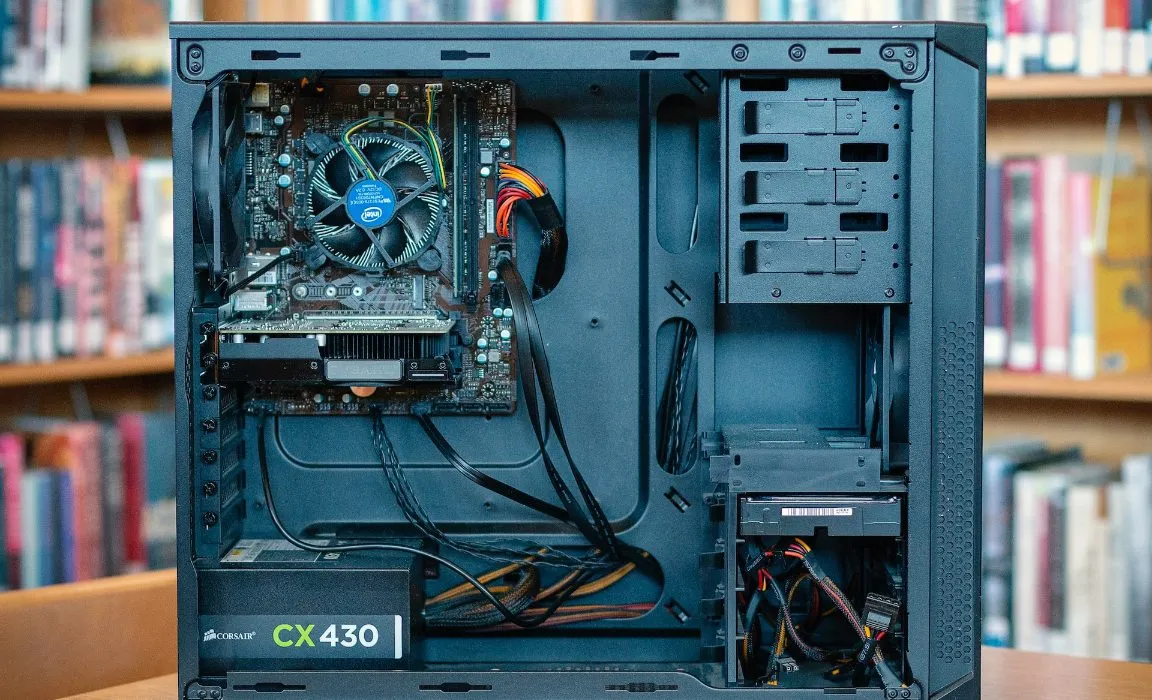
This trend has changed over the years, with prebuilt gaming PCs now sporting decent-quality components – but still not on par with what you can include in a custom-built PC. More importantly, however, with the price of core components like graphics cards fluctuating during the cryptocurrency mining boom, building a custom PC isn’t guaranteed to be cheaper than buying a prebuilt with a similar configuration.
Yet, prebuilt gaming PCs have not completely overcome the price-to-performance gap compared to custom gaming PCs.
Verdict: if you’re willing to put in the time, learn the latest in the world of PC hardware, and acquire PC-building know-how, you can build a PC that demolishes a prebuilt gaming PC at the same price (provided the market conditions are relatively normal).
3. Flexibility
The flexibility to choose the components that make up your PC is also a crucial factor in the build vs. buy debate. After all, components like the CPU, GPU, memory, storage, and even cooling hardware can affect your gaming performance to a great extent.
Buying a prebuilt gaming PC from a store may be convenient and ready to play within a matter of days, but you don’t get much choice regarding the components inside your PC.
Sure, you can try browsing the prebuilds and find one that closely resembles the configuration you’re targeting, but even then, you probably won’t be able to select the motherboard, RAM, or SSD of your choice. Prebuilt PC companies typically source components from OEMs in bulk and don’t focus on flexibility as much as scale. This means you’ll likely end up with a sub-par power supply, slower and lesser memory and storage, and whatever CPU cooler and cooling fans the rebuild comes with.
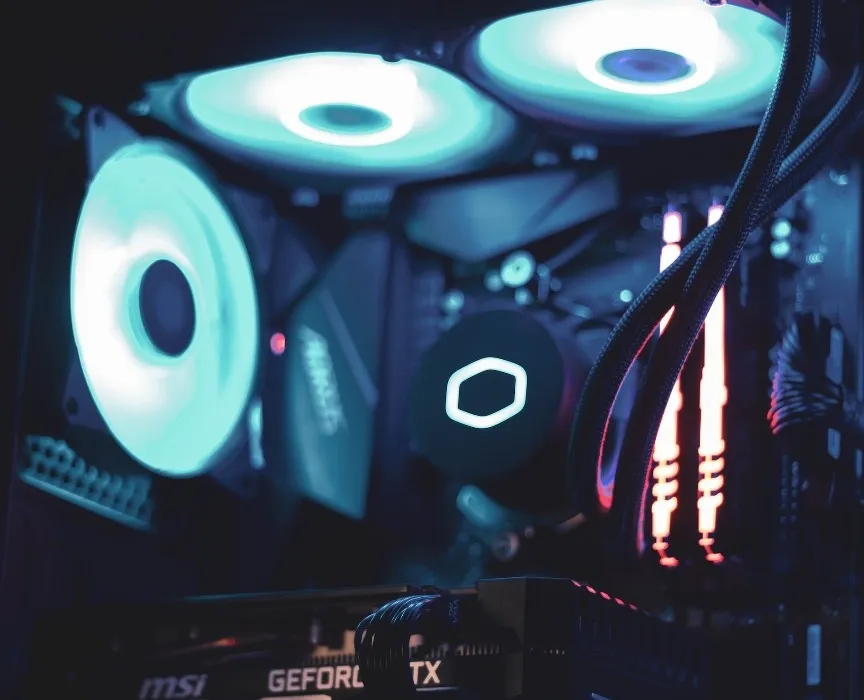
Another drawback that plagues prebuilt PCs is the choice of core components like the CPU and GPU combo. For instance, you can easily find systems with an Intel i5 12600KF paired with an RTX 3060. While the i5 is a capable gaming chip, an RTX 3060 Ti or RTX 3070 would have been better for gaming.
Verdict: when building a custom gaming PC, you can select the components you want down to the last cable and case fan. A custom build gives you the most flexibility.
4. Aesthetics
The components powering your new gaming PC matter a lot, but what also matters is the look and feel of your build. A gaming PC is typically placed on or below your desk and is something you will look at almost every day. This makes aesthetics a crucial factor in the entire buying or building experience.
The aesthetics of your gaming PC includes:
- Choice of PC case
- Build quality of components
- RGB or ARGB components
- Number of case fans
- Motherboard design
- GPU design
- Custom cables and extensions
- Storage heatsinks
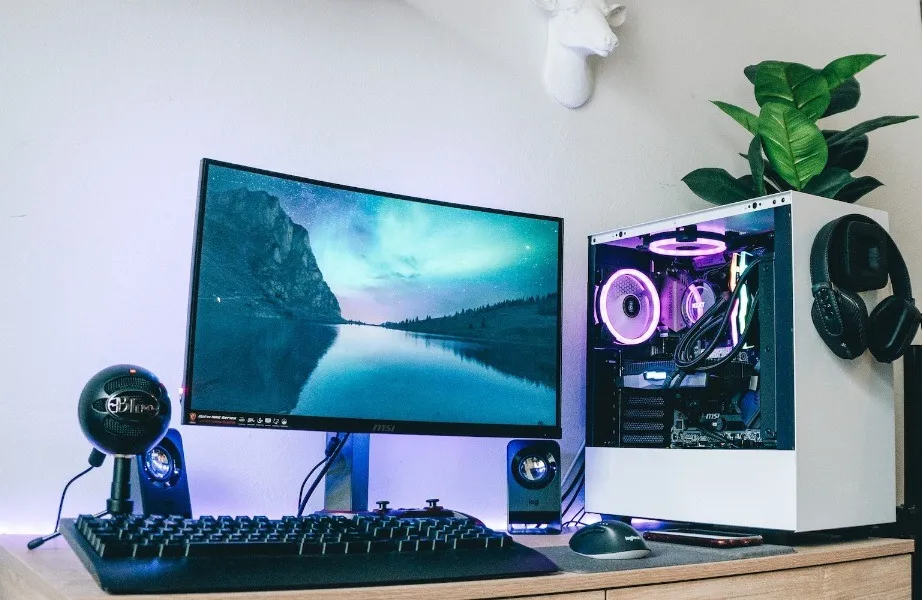
When you’re buying an off-the-shelf prebuilt gaming PC or even purchasing one of the custom options from a PC building company, you won’t have much say in the aesthetics of your PC. The majority of prebuilt systems will feature a limited number of cases between them and will likely skimp on things like RGB components, multiple case fans, and custom cables. Even custom PCs purchased from reputable retailers will offer limited aesthetic options.
Verdict: When you build a gaming PC from scratch, you have complete control over the amount of RGB you want (and the freedom to sync your RGB components), the choice of case and case fans, and whether you want custom liquid cooling loops, a GPU stand, or all-white components. Therefore, a custom PC is your best bet if you value the aesthetics of your build.
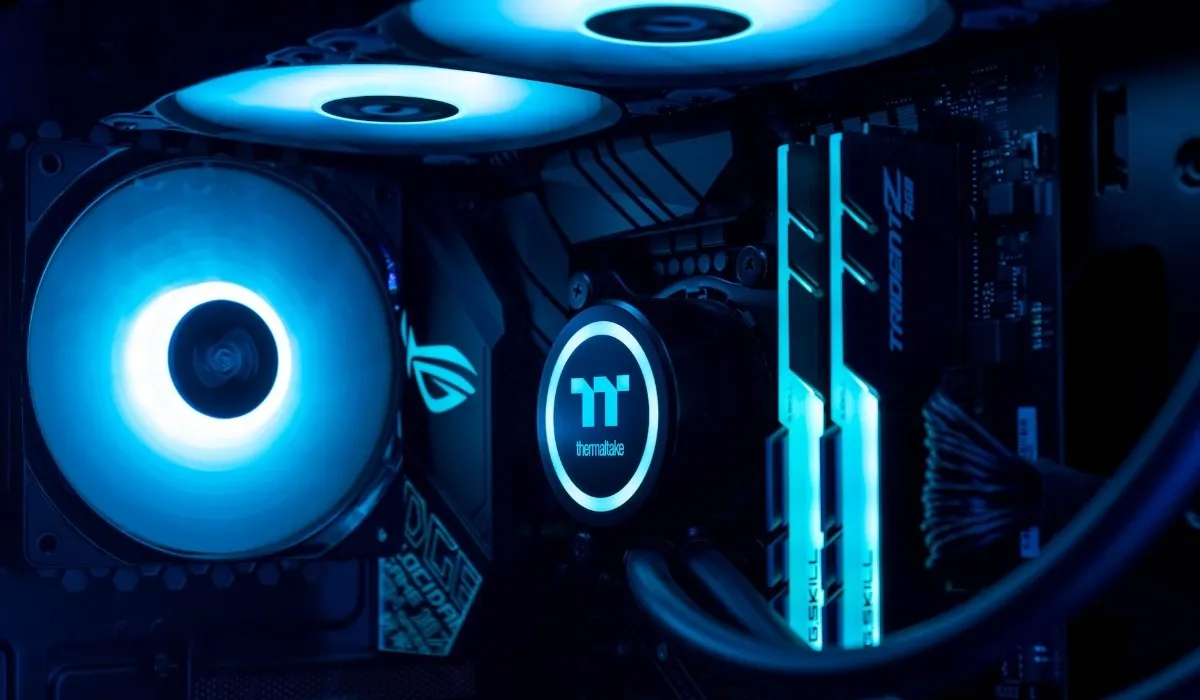
5. Warranty and Tech Support
Even after you’ve bought or assembled your gaming PC, you can potentially encounter problems down the road. Maybe your operating system stops booting, or your graphics card starts throwing errors. This is where warranty and tech support come in handy.
Not everyone has the knowledge or the time to diagnose the cause behind an annoying issue. For this reason, prebuilt gaming PCs have an advantage over custom-built PCs. You have a one-stop shop to voice any concerns with your PC. Just contact tech support, and they will either resolve your issue over the phone or help you send the PC in for repairs. You don’t need to figure out which component is at fault or which program is causing conflicts.

A custom-built PC, however, doesn’t have a dedicated tech support option. The onus is on you to diagnose the issue and send the faulty component, if any, for an RMA process to the specific manufacturer. Conversely, you get more extended warranty periods on individual components when going custom, whereas a prebuilt only has a standard one- or two-year warranty for the entire system.
Verdict: if you’re okay with shorter warranty periods but want a more convenient process, a prebuilt system is better in terms of tech support and warranties.
6. Software
This is quite important for some users. If you’re not willing to install your operating system (Windows in most cases), configure BIOS options, and tweak settings yourself, you would probably be better off with a prebuilt gaming PC. Prebuilt systems ship with an operating system and, at times, even some helpful programs, like Microsoft Office, preinstalled. Some prebuilt PCs even have the correct XMP/EXPO memory profile preconfigured in your BIOS (though, this is still rare).
In contrast, if you build a custom PC yourself, you’ll have to set it up from scratch. This can involve one or more of the following:
- Switching BIOS versions
- Installing the operating system
- Configuring BIOS options (memory profile, fan curves, boot device)
- Optimizing Windows settings to maximize gaming FPS
- Overclocking your GPU
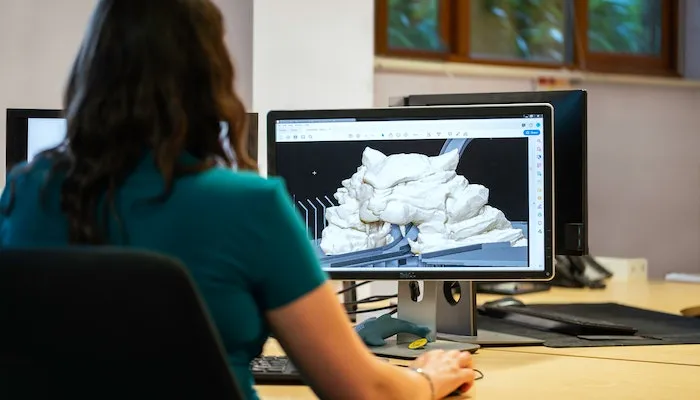
Your prebuilt gaming PC might not come with an overclocked GPU or optimized Windows settings, but it is still a relatively more straightforward plug-and-play option for gamers who don’t want to eke out every last FPS.
But for those who do, building a custom gaming PC is the better choice, as it allows you to set up and configure your PC the way you would like. You can set up custom fan curves for silent yet powerful operation, upgrade BIOS to get the latest features and optimize Windows to maximize performance.
Verdict: if you’re a tech-savvy user, build a custom gaming PC so that you can control the software.
Final Verdict
In summary, it all comes down to the kind of gamer you are and the level of control you desire on your gaming machine. For those who are already well-versed in all things tech – or at least willing to learn, building a PC can be a rewarding and better choice price-wise. But if you want the convenience of a buy-it-and-forget-it machine and are willing to spend more, a prebuilt system could serve you better.
Frequently Asked Questions
Do prebuilt PCs last long?
The life of your gaming PC depends on the quality and performance of the components. If you choose a decently-specced prebuilt gaming PC with quality components installed, your PC can easily last for three to five years, depending on the games and settings used.
Do prebuilt PCs run hot?
What is a future-proof PC build?
Future-proofing is a common concern for custom PC builders and buyers of pre-built systems. Although it may seem logical to buy more powerful components than you currently need to “future-proof” your PC, it’s ultimately a fool’s errand. Unless you’re willing to tone down in-game settings to prolong the life of your components like the GPU, it’s much better to periodically upgrade your components instead of buying a high-end component that will last five to six years. Periodic upgrades are also more cost-efficient, as you not only save money by buying only what you need, but you can also get better resale value for your mid-range parts than high-end ones.
Image credit: Unsplash
- Tweet
Leave a Reply